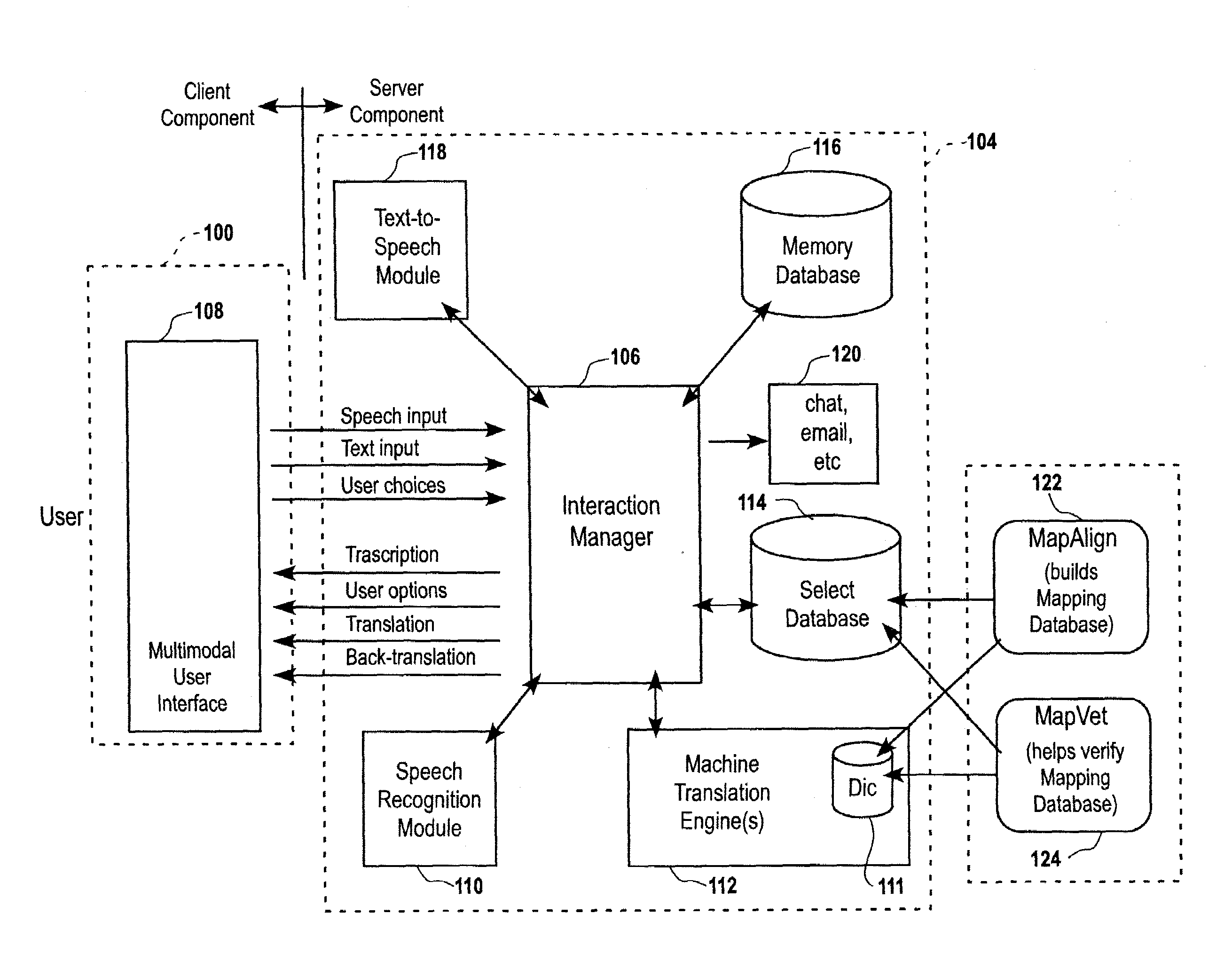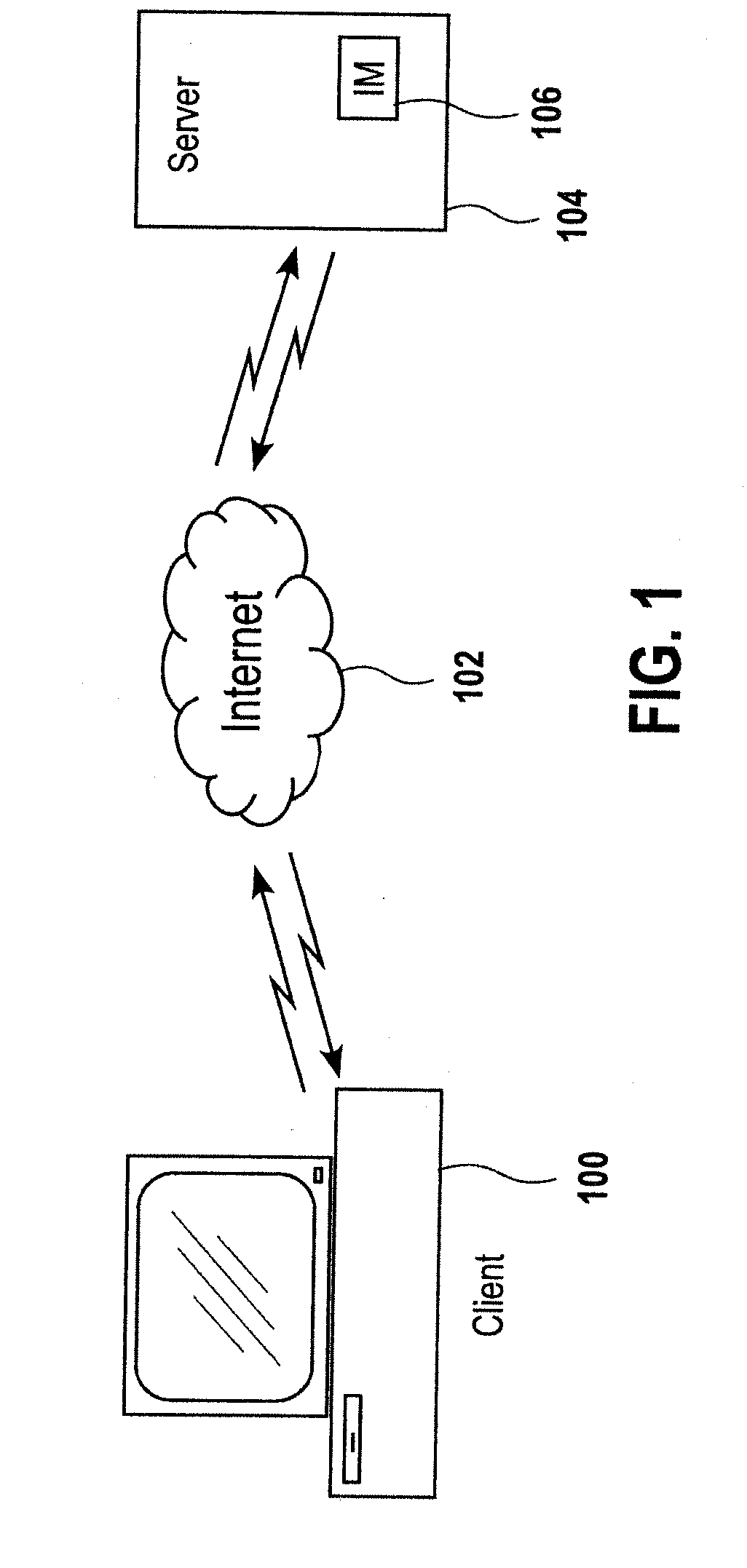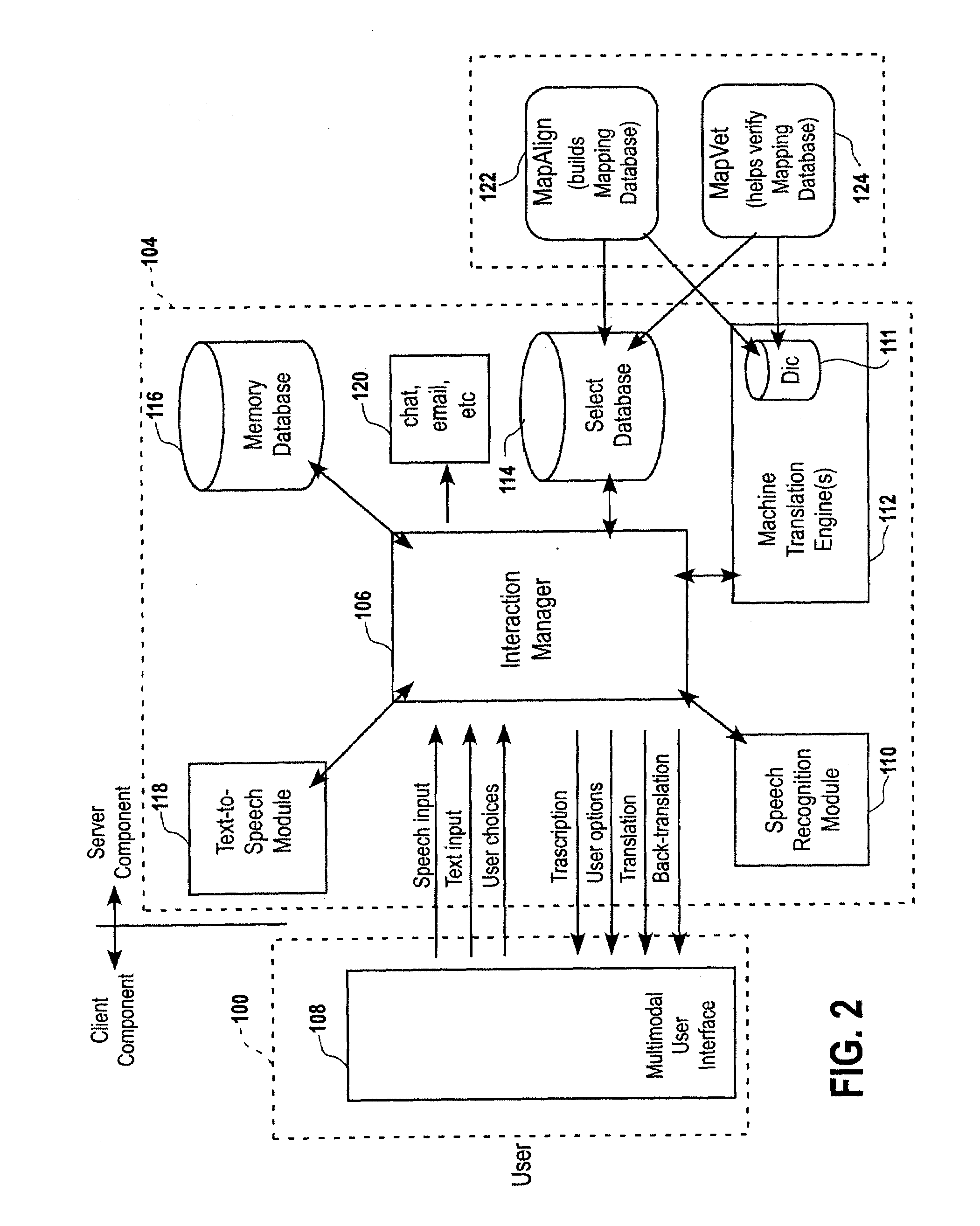Method and apparatus for cross-lingual communication
a cross-lingual communication and language technology, applied in the field of translation systems, can solve the problems of language differences affecting the sharing of updated information, preventing communication between foreign-speaking patients and doctors, and affecting the accuracy of translation results
- Summary
- Abstract
- Description
- Claims
- Application Information
AI Technical Summary
Benefits of technology
Problems solved by technology
Method used
Image
Examples
Embodiment Construction
[0025]An invention is described which permits for the first time a highly interactive style of automatic speech-to-speech translation. The interactive procedures enable a user to recognize, and if necessary correct, errors in both speech recognition and translation, thus providing much more robust translation output than would otherwise be possible. Because of this enhanced robustness, automatic speech-to-speech translation can for the first time be practically extended to wide-ranging language structures and topics, beyond the boundaries of narrow domains such as hotel or airline reservations, without sacrificing accuracy to the point of impracticality. The techniques for interactive translation crucially include facilities for monitoring and correcting word ambiguity errors. To effectively choose word meanings in context, users require Meaning Cues (definitions, synonyms, examples, associated words, pictures, etc.). Such cues must be collected from disparate sources and correlated...
PUM
 Login to View More
Login to View More Abstract
Description
Claims
Application Information
 Login to View More
Login to View More - R&D
- Intellectual Property
- Life Sciences
- Materials
- Tech Scout
- Unparalleled Data Quality
- Higher Quality Content
- 60% Fewer Hallucinations
Browse by: Latest US Patents, China's latest patents, Technical Efficacy Thesaurus, Application Domain, Technology Topic, Popular Technical Reports.
© 2025 PatSnap. All rights reserved.Legal|Privacy policy|Modern Slavery Act Transparency Statement|Sitemap|About US| Contact US: help@patsnap.com



